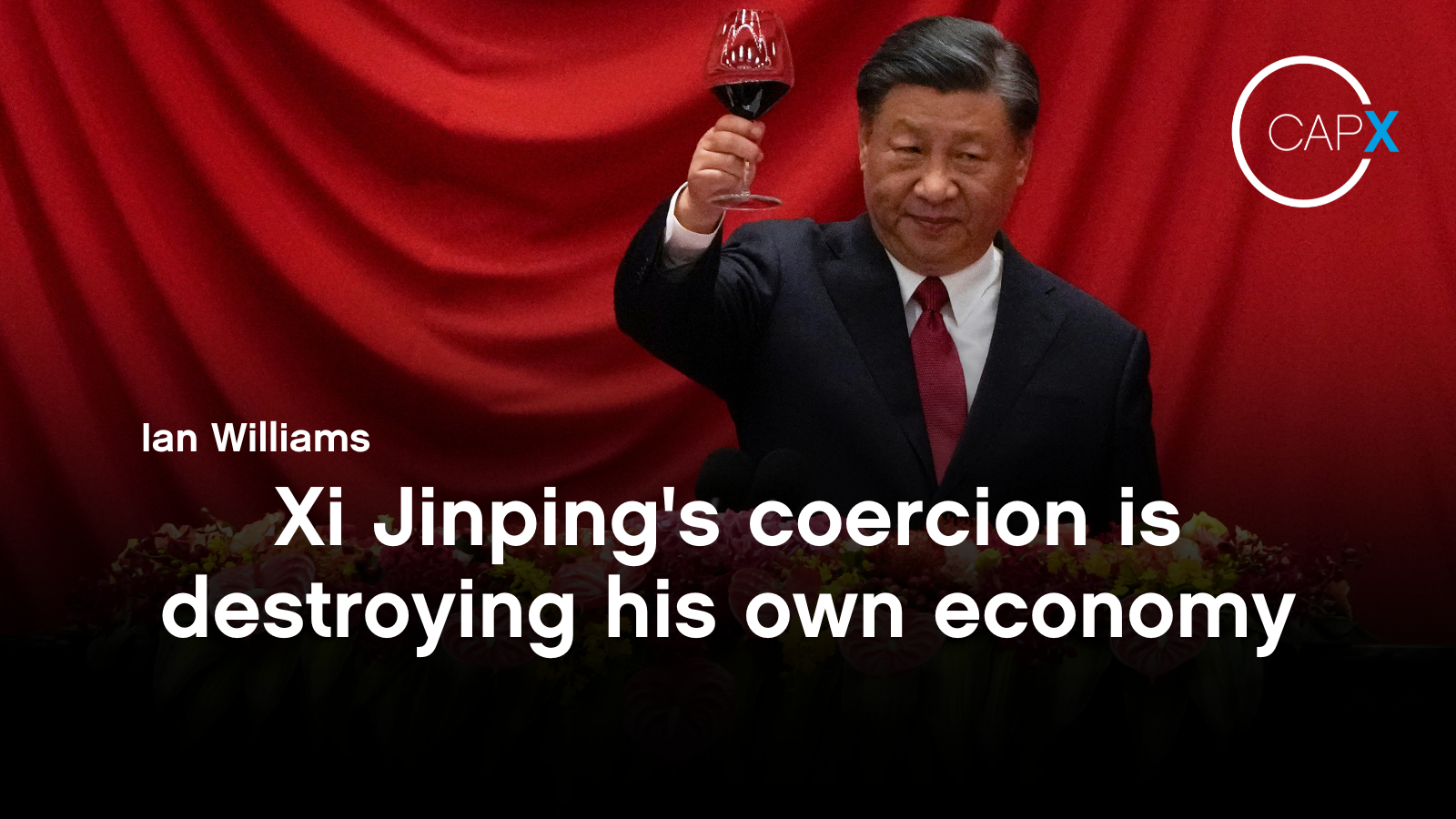- cross-posted to:
- [email protected]
- cross-posted to:
- [email protected]
cross-posted from: https://feddit.org/post/3630108
The [Chinese economic] model that has powered four decades of breakneck economic growth was reliant on cheap exports and wasteful state-led investment in property and infrastructure. It is no longer sustainable. It has led to soaring debt and diminishing returns, with China littered with ghost cities, containing 60 to 100 million empty or incomplete homes, while companies accounting for 40% of China’s home sales have defaulted. It is widely agreed that China needs to rebalance its economy, that consumers need to spend more, since private consumption accounts for just 39% of the economy – extremely low by world standards (the figure in the US is 68%). But there is no consumer confidence, with 80% of family wealth tied up in property and no meaningful social safety net.
China’s leader Xi Jinping hopes renewable energy tech can replace property as a new motor of growth, and mouth-watering subsidies have been thrown at industries ranging from solar panels to electric vehicles (EVs) and batteries, leading to massive over-capacity and vicious price wars. Yet the benign global environment that accompanied China’s earlier export splurges has gone; the world is much more wary, and both the US and EU have imposed hefty tariffs on Chinese EVs and solar panels they allege are being dumped at below cost.
[,]
China has never provided a level playing field for foreign business, but under Xi, the environment has become increasingly hostile. Last year, direct foreign investment into China fell to a 23-year-low. In Western boardrooms, once so bewitched with capturing a share of the mythical China market that they would put normally rational decision-making aside and suffer almost any indignity, ‘resilience’ has become the watchword. The Ukraine war has exposed the danger of over dependence on autocrats with hostile ambitions.
[…]
Rule 3 states that opinion articles “may” be removed, but frankly I’m not seeing a compelling reason to remove this other than it’s flagged as opinion.
I am not sure whether I understand your comment. Don’t you want opinionated articles to be flagged as ‘opinion’? I thought it’s a good idea as it is not a typical news article. Just let me know.
Opinion articles may or may not be factual, which makes them opinion.
Yours seems well sourced and backed up so there’s no problem.
Great article, very informative and accurate.
Yea, Communism is famous for being unable to compete in would class athletics. : /
I get the larger point, it’s just that this metaphor doesn’t quite support it.
The CCP routinely uses trade, investment and market access as means of coercion. This was demonstrated in June when the China’s consul-general in Edinburgh leant on local business, who in turn pressured the city council into shelving plans for a new ‘friendship arrangement’ with the Taiwanese city of Kaohsiung. Coercion is a fact of business life with China, and this needs to be recognised. A better starting point is to focus on the dangers of overdependence in critical areas and the need to stand up to bullying. Furthermore, there needs to be a recognition that Xi’s priority is security and control above all else – including the economy
This is happening all over the world.
China is indeed doing that all over the world. In May this year, for example, the Chinese ambassador to Japan said that “Japanese people would be dragged into the fire” if they support Taiwan independence, while China’s ambassador to Australia said in January that Australia would be “pushed over the edge of an abyss” if they support Taiwan’s independence.
If such coercive tactics are criticized, the response is often blatant whataboutism.
CapX - News Source Context (Click to view Full Report)
Information for CapX:
MBFC: Right - Credibility: Medium - Factual Reporting: Mostly Factual - United Kingdom
Wikipedia about this sourceInternet Archive - News Source Context (Click to view Full Report)
Information for Internet Archive:
MBFC: Left-Center - Credibility: High - Factual Reporting: Mostly Factual - United States of America
Wikipedia about this source



